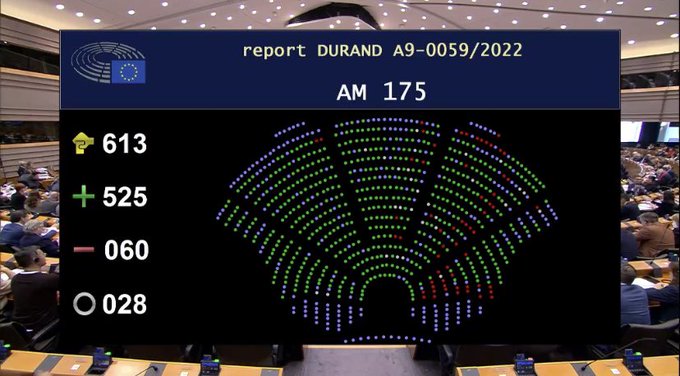On September 23, British cosmetics company Faith in Nature appointed Nature to its Board of Directors. A world first, revealing the growing importance of governance as a field of strategic innovation for committed companies.

" Nature is the Boss " has been Faith in Nature's philosophy since the company was founded in 1974. Wondering what this motto really implied, the company's directors came to the conclusion that Nature should be able to make its voice heard and express its interests on an equal footing with those of other stakeholders. As a member of the Board of Directors, "Nature is now really the boss"!
Relying on the expertise of lawyers from Lawyers for Nature*, a collective committed to the recognition of Nature's rights, the company has amended its articles of association to make Nature one of its directors in its own right.
From the next Board meeting, she will be able to express her views and take part in the vote. To this end, a representative legally obliged to express himself in accordance with its interests will be entrusted with carrying its voice: a true legal innovation based on the mechanism of legal guardianship . Nature's point of view is now a key filter for all strategic decisions.
An initiative that illustrates the conviction we hold at WEMEAN: innovations in governance will be the key to effective, high-impact transformations!
To find out more about the Faith in Nature initiative, read our exclusive interview with Simeon Rose and Anne Hopkins, the driving forces behind Faith in Nature, and Brontie Ansell, Professor of Law at the University of Essex and co-founder of Lawyers for Nature.
*Community Interest Company
Exclusive WEMEAN interview with Simeon Rose & Anne Hopkins (Faith in Nature) and Brontie Ansell (Lawyers for Nature)
Why did Faith in Nature go so far as to appoint Nature to its Board? Why integrate it into this strategic governance body?
Simeon Rose: It all started with the observation that, while every decision we make as a company has an impact on the planet, Nature's voice is the only one not heard on the Board. Even though, culturally, at Faith in Nature, we already considered Nature to be the "Boss", filtering our decisions through Nature's point of view, trying to imagine, we ended up wondering whether she really was.
For her to become the Boss, we felt that she had to be an integral part of the decision-making process, right from the start, and not come in at the end. She had to be able to take part in the conversation alongside the other Board members. The idea was really to make Nature the Boss, not just to safeguard it. We figured the best way to do that would be to make her a member of the Board.
Anne Hopkins: I think this approach is also linked to the emergence of the Rights of Nature [in the world]. We were struck by this dynamic, and asked ourselves the naive question of why Nature's rights weren't already being taken into account by companies.
How is it possible to appoint Nature as a member of the Faith in Nature Board when it is not recognized as a legal subject in the UK?
Brontie Ansell: From a technical point of view, Faith in Nature appointed Lawyers for Nature, a not-for-profit company, as a Board member to speak on behalf of Nature. While the UK government has yet to recognize Nature as a subject of law, we therefore combined corporate law to appoint Lawyers for Nature as a Board member and the principles of ethical governance to impose on this entity the duty to speak on behalf of Nature.
The remuneration that Lawyers for Nature will receive as Nature's intermediary on the Board will be used to pay the members of the Expert Committee specially created to inform its decisions.
What is the composition of this Expert Committee?
Brontie Ansell: At the moment, this Committee is made up of a philosopher of the rights of Nature, an environmental specialist, an expert in ethical governance, lawyers who are members of Lawyers for Nature and who work on the question of the legal personality [of Nature], Paul Powlesland [the co-founder of Lawyers for Nature] and myself .
Two referral mechanisms have been set up: an informal mechanism that will enable Lawyers for Nature to call on the Committee at any time to discuss a point, and a formal mechanism that will enable the Board to refer a specific issue to the Committee, such as a long-term one.
How and to what extent will this decision change the way Faith in Nature conducts its business activities?
Simeon Rose: Let me start by saying that we expect this decision to change things; otherwise we wouldn't have done it. Our original motivation was to enable the company to make better, more informed, more responsible decisions [from Nature's point of view]. To do this, we believe that Nature's voice must be heard.
How will this decision change things? It will change the way we make decisions; and we expect it to be for the better. To what extent? We don't yet know.
Anne Hopkins: I think the change will come on two levels, culturally and practically. On a cultural level, the simple fact of having announced that Nature has been appointed a member of the Board, and not just a witness [to the decision-making process], is a shift, a change of mentality at Faith in Nature.
On a practical level, this decision will enable us to make better decisions, because we'll be helped by experts. Because even with all the good will in the world, making the right decision isn't always easy.
Patagonia's founder recently decided to make the Earth his sole shareholder by transferring the company to two legal structures which will be responsible for financing actions for the planet. Why didn't Faith in Nature opt for the approach chosen by Patagonia?
Simeon Rose: Patagonia's approach was simply not ours. Above all, we wanted to give Nature a voice in the company's decision-making process. Another positive aspect of our approach is that it can easily be replicated by other companies. Many companies can do what we have done.
Brontie Ansell: There's a difference between Patagonia's approach and ours. In Patagonia's case, the founder chose to sell his company's shares to a trust whose mission is to fight global warming. That's not the same thing as giving Nature a voice, affirming her as a person in her own right. It's not radical to transfer one's shares to a company, which has legal personality, so that it can manage them according to the objectives given to it.
[What is radical] is to give Nature a voice. At the moment, English law does not recognize Nature as a subject of law, but allows an intermediary [legal person] to exercise rights on her behalf. In this way, it is possible to give Nature a voice on the Board, which is where most of the power resides. Allowing Nature's voice to be heard within this governance body is a major innovation.
ABOUT WEMEAN,
the consulting firm for committed companies
Cabinet du conseil positif®, WEMEAN is a new-generation management consultancy that puts meaning at the heart of organizational strategy. Its raison d'être is to " collectively [we], activate the meaning [mean] of corporate projects to contribute to a positive transformation of society ".
WEMEAN is the only firm that supports managers and organizations in their :
- STRATEGIES (corporate project, vision and value proposition, raison d'être and mission, new governance),
- TRANSFORMATIONS (support and operational deployment, strategic steering and implementation, human dynamics and managerial mobilization, impact investment),
- and COMMITMENTS (communications, public affairs, complex issues, partnerships and concerted action).
WEMEAN has already worked with over 70 customers, includingOrange, Citeo, Keolis, Icade, Siemens, Suez, Groupe Rocher, Servair, PwC,AOC Ventoux and Groupe ADSN. The firm is accredited HappyIndex® AtWork 2022 by ChooseMyCompany, with an EngagementIndex score of 81.4, and relies on Mão Boa to translate its raison d'être into CSR policy.


